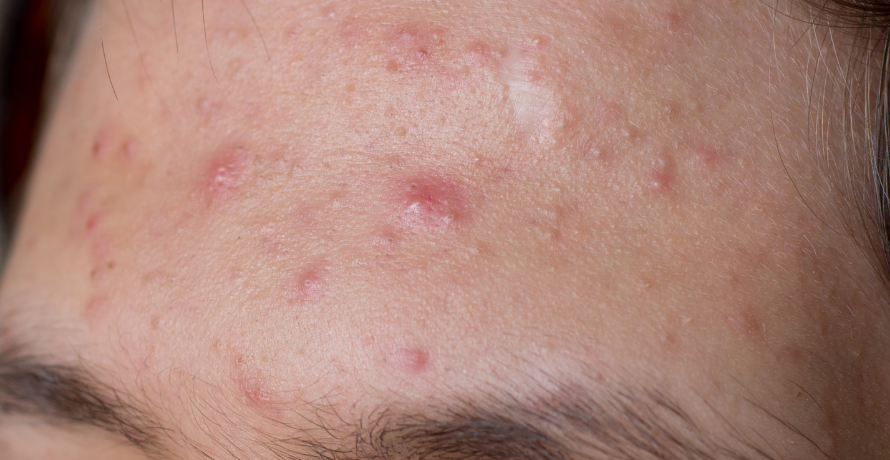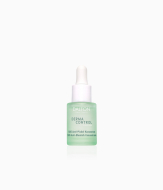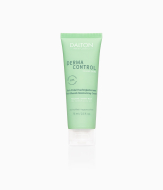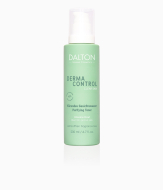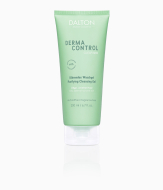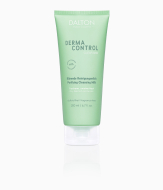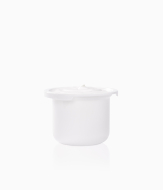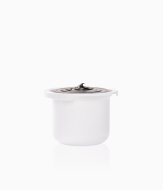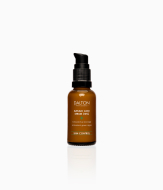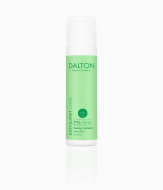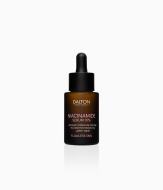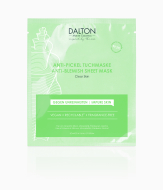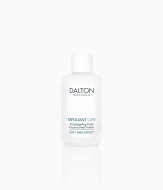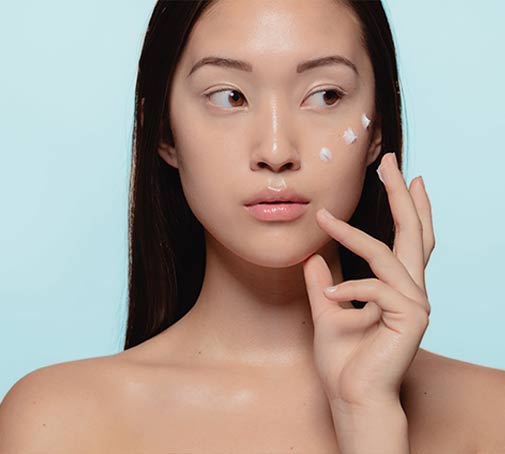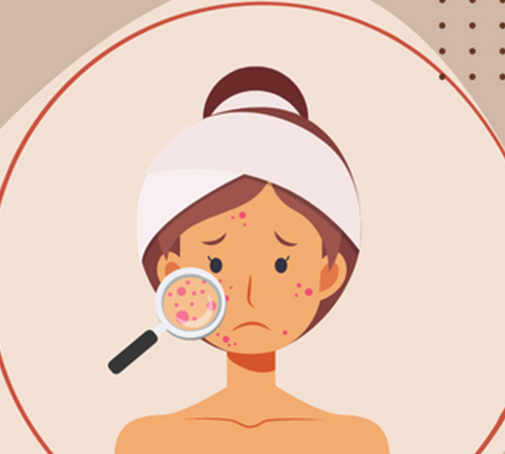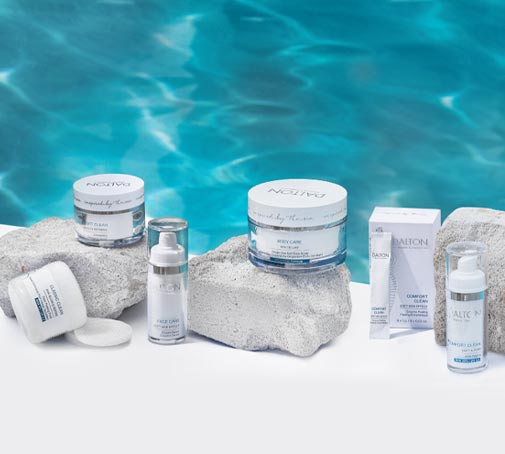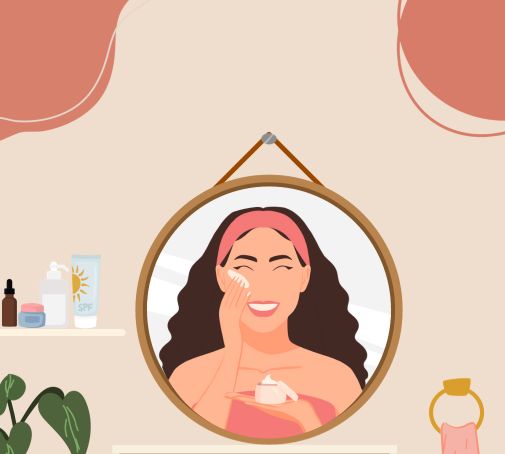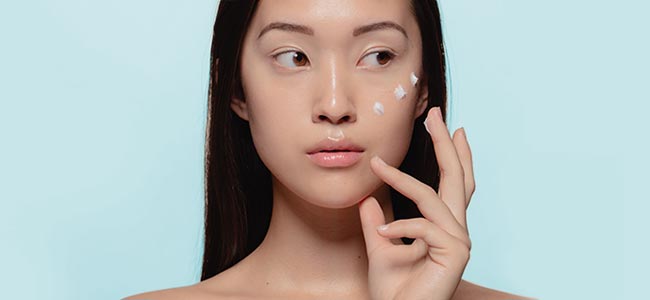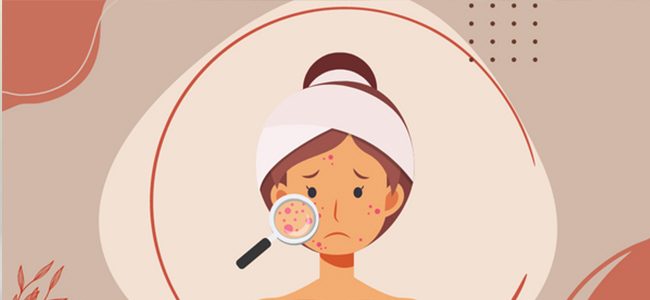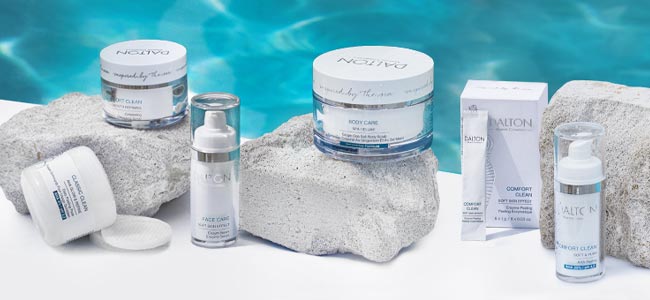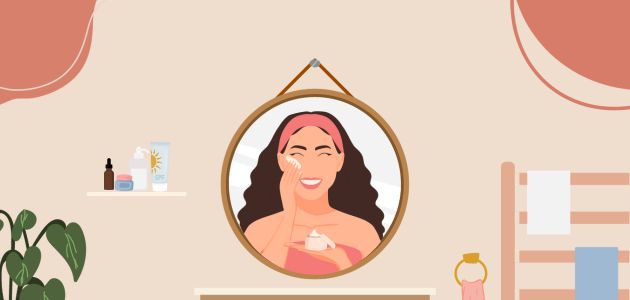
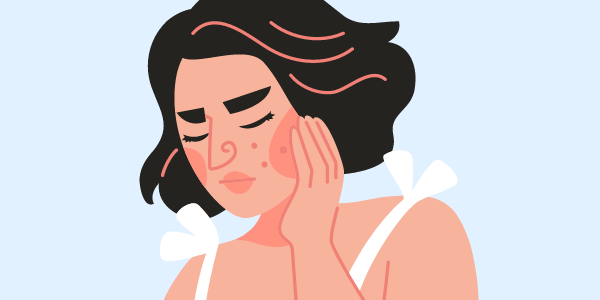
Hormonal Acne
When our hormones go crazy, we can feel it and see it too. Suddenly, we experience mood swings and are feeling unwell. Our skin can also change - hormonal acne kicks in.
Are hormonal pimples harbingers of acne?
If your hormones are out of balance due to puberty, pregnancy or other physical changes, it can lead to blemishes and clogged pores. Hormonal pimples are not the same as acne, though. The former is a skin problem that can occur in certain phases due to various influences (such as stress). Hormonal acne, on the other hand, is a complex skin condition that can only be diagnosed by a medical professional. However, both conditions are triggered by hormonal imbalance.
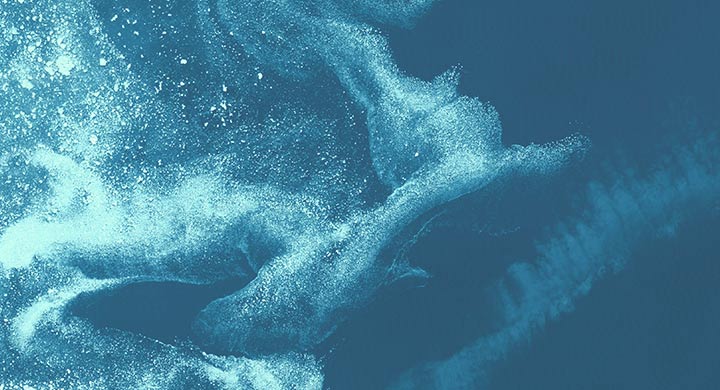



What are hormones?
We have already established that hormones can promote acne, but also occasional outbreaks of pimples. But before we delve deeper into the topic, let’s first clear things up: What are hormones and what do they have to do with your skin? Hormones are chemical messengers in the body that drive various physiological processes. One well-known example is the hormone insulin, which control blood sugar levels. Other hormones regulate the metabolism, libido, energy and water levels. Even small changes and external influences can trigger an imbalance.
What causes hormonal acne?
The ultimate enemy of clear skin is an imbalanced ratio of female sex hormones (oestrogen, progestogens) and male sex hormones (androgens, such as testosterone). Yes, it is normal that we all carry hormones of the opposite sex. But how do they trigger flare-ups of blemishes and inflammation? Androgens can accelerate sebum production and promote oily skin. At the same time, dry, dead skin cells clog the pores and prevent the excess sebum from flowing out. This leads to the formation of comedones, which can develop into inflamed pimples and pustules.
Symptoms and forms of hormonal acne
Compared to other skin conditions such as eczema or rosacea, hormonal acne is not so easy to recognize and classify. This is because it is not a specific type of acne per se. Many forms of acne are hormonal in origin, which makes acne treatment very challenging and unique for every individual. Is the skin prone to mild acne due to hormonal fluctuations during puberty or when you stop taking birth control pills? These are all factors that need to be taken into account when choosing the right acne treatment. The areas of skin that are frequently affected include the lower half of the face, back, neck and chest.
Hormonal acne has the following degrees of severity:
Acne comedonica
Comedonal acne is a mild form of acne that commonly affects the T-zone. It is mainly blackheads and whiteheads that accumulate in this region. The skin appears oily. Acne comedonica is widespread during puberty and often subsides in young adulthood.
Acne papulopustulosa
The moderate form of hormonal acne is characterized by pustules, papules and even nodules on the forehead, nose and cheeks. The deeper the inflammation, the more likely it is that scars will form.
Acne conglobata
In severe acne, large lumps, papules and pustules mark the skin. It presents with painful, burrowing abscesses and inflammatory lesions and the likelihood of scarring is very high.
Hormonal acne has the following degrees of severity:
Acne comedonica
Comedonal acne is a mild form of acne that commonly affects the T-zone. It is mainly blackheads and whiteheads that accumulate in this region. The skin appears oily. Acne comedonica is widespread during puberty and often subsides in young adulthood.
Acne papulopustulosa
The moderate form of hormonal acne is characterized by pustules, papules and even nodules on the forehead, nose and cheeks. The deeper the inflammation, the more likely it is that scars will form.
Acne conglobata
In severe acne, large lumps, papules and pustules mark the skin. It presents with painful, burrowing abscesses and inflammatory lesions and the likelihood of scarring is very high.
How to care for your skin
A tailored skincare routine is especially important for blemish-prone skin. On the one hand, to improve the current condition of the skin, and on the other to prevent new breakouts. However: If you have a severe, chronic skin condition like acne, a good skincare routine is an important part of the treatment, but not sufficient on its own. A professional diagnosis and consultation with a dermatologist is absolutely essential. Depending on the severity, medication can be used to support the treatment. With regard to possible scarring, there are various methods that the specialist can use as a preventative measure.
Suitable skincare
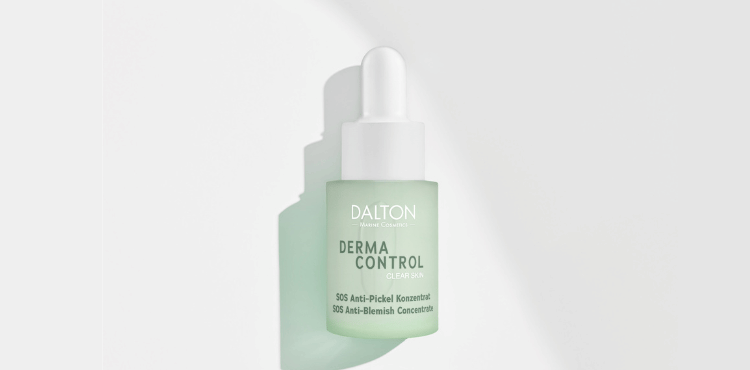

1. Special skincare lines for blemish-prone skin can have a supportive effect and improve the skin’s appearance in the long term. For minor breakouts (due to stress or the menstrual cycle, for example) our anti-inflammatory OYSTER Mask or the SOS Anti-Blemish Concentrate can help to reduce blemishes.
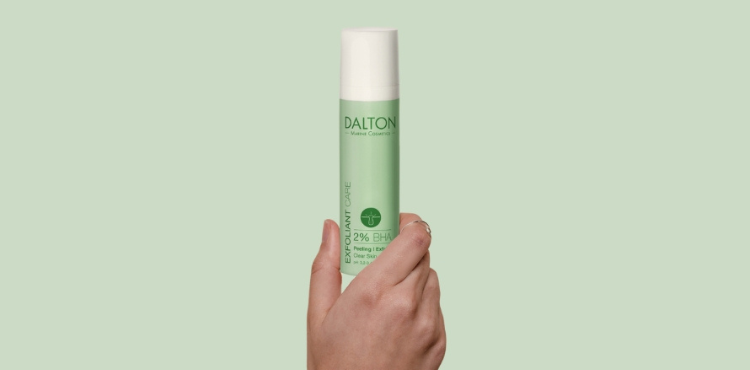

2. Chemical peels offer multiple benefits, including anti-blemish properties. BHA exfoliants in particular are excellent products for acne-prone skin, because they unclog pores, help to treat keratinization disorders and prevent the appearance of blemishes. Physical exfoliants and scrubs are not recommended for acne-prone skin, because they can spread the infection. Tip: a gentle enzyme peel is ideal if your breakouts stem from fluctuating hormone levels during pregnancy or while breastfeeding.
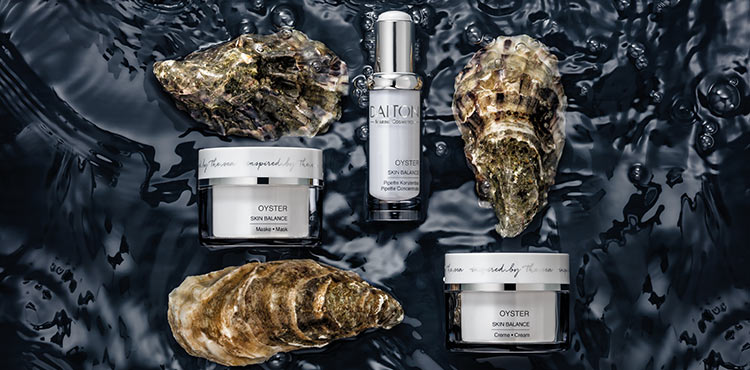

3. For hormonal breakouts during the menopause or after stopping the pill, we recommend the OYSTER skincare collection. It helps to control sebum production, prevents clogged pores and comedones and reduces first signs of wrinkles.
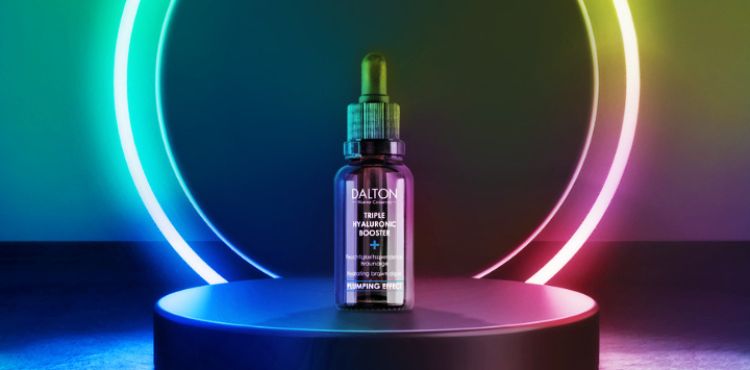

4. Our 10% Azelaic Acid Serum is a miracle product for acne and blemish-prone skin. It has antibacterial and anti-inflammatory properties and improves the skin’s appearance in the long term. Are you struggling with pimple marks? Be sure to try our 10% Niacinamide Serum! It has a pore-refining effect and reduces the look of dark spots and pimple marks.


1. Special skincare lines for blemish-prone skin can have a supportive effect and improve the skin’s appearance in the long term. For minor breakouts (due to stress or the menstrual cycle, for example) our anti-inflammatory OYSTER Mask or the SOS Anti-Blemish Concentrate can help to reduce blemishes.


2. Chemical peels offer multiple benefits, including anti-blemish properties. BHA exfoliants in particular are excellent products for acne-prone skin, because they unclog pores, help to treat keratinization disorders and prevent the appearance of blemishes. Physical exfoliants and scrubs are not recommended for acne-prone skin, because they can spread the infection. Tip: a gentle enzyme peel is ideal if your breakouts stem from fluctuating hormone levels during pregnancy or while breastfeeding.


3. For hormonal breakouts during the menopause or after stopping the pill, we recommend the OYSTER skincare collection. It helps to control sebum production, prevents clogged pores and comedones and reduces first signs of wrinkles.


4. Our 10% Azelaic Acid Serum is a miracle product for acne and blemish-prone skin. It has antibacterial and anti-inflammatory properties and improves the skin’s appearance in the long term. Are you struggling with pimple marks? Be sure to try our 10% Niacinamide Serum! It has a pore-refining effect and reduces the look of dark spots and pimple marks.
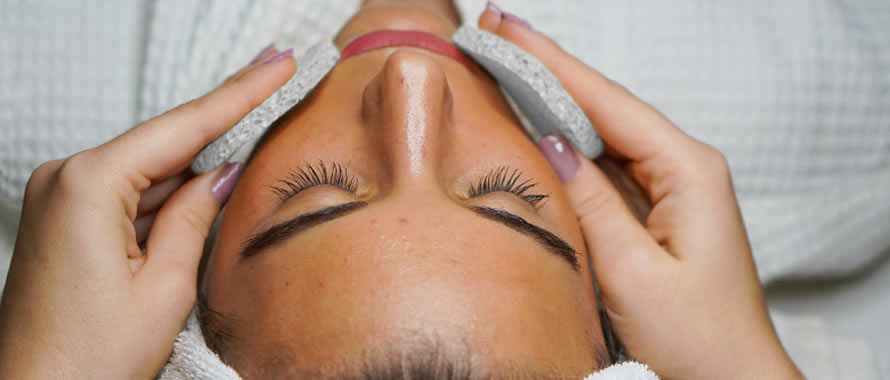



Our Top Tips
- Less is more! Be careful not to overwhelm your skin with too many products.
- A healthy and balanced diet can do wonders for your skin
- Schedule regular professional skin treatments
- Follow a good skincare routine twice a day
- Make an appointment with a doctor if you suffer from severe symptoms
SIMILAR POSTS
You Might Also Like

